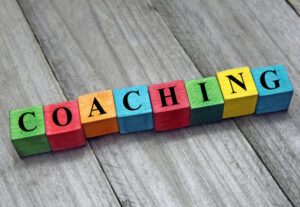In today’s fast-paced world, navigating the complexities of personal and professional development can be a challenging endeavor. That’s where coaching comes into play. Whether you’re aiming to achieve career milestones, enhance your leadership skills, or embark on a journey of self-discovery, coaching provides invaluable support and guidance. This blog is dedicated to unraveling the transformative power of personal and professional coaching, offering insights, strategies, and practical tips to help you unlock your full potential.
Contents
What Is Personal And Professional Coaching?
 Personal and professional coaching is a dynamic and goal-oriented process that involves working with a trained coach to facilitate personal and career development. In the realm of personal coaching, the focus is on an individual’s life, well-being, and self-improvement. Coaches help clients identify their goals, overcome obstacles, and make positive changes in areas such as relationships, self-confidence, and work-life balance.
Personal and professional coaching is a dynamic and goal-oriented process that involves working with a trained coach to facilitate personal and career development. In the realm of personal coaching, the focus is on an individual’s life, well-being, and self-improvement. Coaches help clients identify their goals, overcome obstacles, and make positive changes in areas such as relationships, self-confidence, and work-life balance.
On the other hand, professional coaching is tailored to enhance a person’s career-related skills and performance. Coaches provide guidance, support, and feedback, and they use a variety of techniques and tools to help individuals clarify their objectives, create action plans, and track progress. The process is highly personalized, with the coach adapting their approach to the unique needs and goals of each client.
Ultimately, personal and professional coaching is about empowering individuals to reach their full potential, whether in their personal lives, their careers, or a combination of both.
How Is It Different From Other Coaching?
Personal and professional coaching is distinct from other forms of coaching due to its specific focus and objectives. Here are some key differences:
Life and Career Goals
Personal and professional coaching centers on helping individuals set and achieve life and career-related goals. It involves both personal development and career development, making it comprehensive in its approach. Other coaching types may focus solely on one area, such as executive coaching (career-focused) or life coaching (personal development-focused).
Goal-Oriented
Personal and professional coaching is highly goal-oriented. Coaches work with clients to set specific, measurable, achievable, relevant, and time-bound (SMART) goals, and then they assist in developing action plans to attain these objectives. While other coaching types may have goals, they may not be as rigorously structured or might revolve around more specific areas, like leadership skills or health and wellness.
Versatility
Personal and professional coaching is versatile and can adapt to various aspects of a person’s life. It can address issues in both personal and professional domains, offering a holistic approach to development. In contrast, some other coaching types may be specialized, focusing primarily on one particular aspect, such as sports coaching or health coaching.
Audience
Personal and professional coaching is open to a wide range of individuals, including those looking to improve themselves personally, advance their careers, or find a balance between the two. Other coaching types may target more specific audiences, such as athletes, entrepreneurs, or individuals seeking health and fitness coaching.
Overall, personal and professional coaching stands out for its all-encompassing approach and goal-oriented nature. And adaptability to a broad spectrum of life areas, making it a versatile and comprehensive coaching practice.
What Is The Process Of Personal And Professional Coaching?
 The process of personal and professional coaching typically follows a structured framework designed to help individuals achieve their goals and personal or career development objectives. Here’s an overview of the typical coaching process:
The process of personal and professional coaching typically follows a structured framework designed to help individuals achieve their goals and personal or career development objectives. Here’s an overview of the typical coaching process:
Initial Assessment
- The coaching relationship begins with an initial assessment, where the coach and client establish a rapport and build trust.
- The coach conducts an in-depth exploration of the client’s background, current situation, and desired goals.
- Together, they identify specific, measurable, and achievable objectives that the client wants to work on during the coaching engagement.
Goal Setting
- Coaches assist clients in setting clear and well-defined goals. These goals are often framed using the SMART (Specific, Measurable, Achievable, Relevant, and Time-bound) criteria.
- The goals can span various areas, from personal growth and well-being to career development and leadership skills.
Action Planning
- The coach and client collaboratively develop action plans that outline the steps needed to achieve the identified goals.
- These action plans include specific tasks, timelines, and measurable milestones.
Coaching Sessions
- Regular coaching sessions are conducted, either in person, over the phone, or via video conferencing. The frequency and duration of sessions can vary, depending on the coaching agreement.
- During sessions, the coach engages the client in meaningful conversations, using active listening and powerful questioning techniques to facilitate self-awareness and growth.
- Coaches offer guidance, support, and feedback to help clients stay on track with their action plans and navigate challenges effectively.
Feedback and Reflection
- Coaches encourage clients to reflect on their progress and experiences between sessions.
- Feedback from the coach, along with self-reflection, allows clients to make necessary adjustments to their action plans and strategies.
Evaluation and Adaptation
- Periodically, the coach and client assess progress toward the established goals and make any necessary adjustments to the coaching plan.
Goal Achievement
- The coaching process continues until the client has achieved their goals or feels confident in maintaining their progress independently.
- The coach may help the client develop strategies for long-term success and sustainability.
Closure and Transition
- When the client has reached their objectives, the coaching relationship is formally closed.
- The coach may offer guidance on maintaining progress and transitioning to a self-sustaining mode of personal or professional development.
The personal and professional coaching process is highly individualized and adaptable, designed to meet the unique needs and goals of each client. It provides a structured framework for personal growth, skill enhancement, and achieving desired outcomes.
What Are The Pros And Cons To Consider?
Personal and professional coaching offers numerous benefits. But it also comes with certain limitations and considerations. Here are some of the pros and cons to keep in mind:
Pros
- Goal Achievement: Coaching is highly effective in helping individuals clarify their goals and take meaningful steps toward achieving them.
- Personalized Support: Coaches provide one-on-one, tailored guidance, addressing individual needs and preferences.
- Enhanced Self-Awareness: Coaching promotes self-reflection, helping clients gain a deeper understanding of their strengths, weaknesses, values, and aspirations.
- Improved Problem-Solving: Coaches help clients develop better problem-solving skills and strategies to overcome obstacles.
- Increased Confidence: Clients often experience increased confidence and self-esteem as they make progress toward their goals.
- Effective Communication: Professional coaching can enhance communication and interpersonal skills, benefiting both personal and professional relationships.
- Work-Life Balance: Personal coaching can assist in achieving a healthier work-life balance, reducing stress and burnout.
Cons
- Cost: Coaching can be expensive, particularly when working with experienced coaches. It may not be accessible to everyone.
- Time Commitment: The coaching process requires a significant time commitment for sessions, reflection, and goal pursuit.
- Unrealistic Expectations: Clients may have unrealistic expectations about the speed and extent of the changes they can achieve through coaching.
- Dependence: There’s a risk of clients becoming overly dependent on their coach for decision-making, potentially hindering self-reliance.
- Compatibility: The effectiveness of coaching depends on the compatibility and trust between the coach and the client. If there’s a mismatch, it may not yield the desired results.
- Lack of Regulation: Coaching is not as regulated as some professions. So individuals need to research and select qualified coaches carefully.
- Confidentiality: While coaching sessions are typically confidential, there’s no legal protection for this confidentiality as there is with licensed therapists.
- Resistance to Change: Some clients may resist change. This can limit the success of coaching efforts.
It’s important to carefully weigh the pros and cons of coaching and consider whether it aligns with your goals, budget, and expectations. Choosing the right coach and being committed to the process can maximize the benefits while minimizing the drawbacks.
How Do I Choose The Right Personal And Professional Coaching?
 Choosing the right personal and professional coach is a crucial decision, as the effectiveness of the coaching process depends on the coach-client relationship. Here are some steps to help you choose the right coach:
Choosing the right personal and professional coach is a crucial decision, as the effectiveness of the coaching process depends on the coach-client relationship. Here are some steps to help you choose the right coach:
1. Identify Your Goals
- Clearly define your personal and professional goals. Knowing what you want to achieve through coaching will help you find a coach with the relevant expertise and specialization.
2. Do Your Research
- Look for coaches who specialize in the areas you want to address, whether it’s career advancement, leadership development, life balance, or other specific objectives.
- Seek recommendations from trusted sources, such as colleagues, friends, or online reviews.
- Explore coaching directories and professional organizations, like the International Coach Federation (ICF), which maintains databases of certified coaches.
3. Credentials and Certification
- Check a coach’s credentials and certifications. Reputable coaches often have training from accredited coaching programs and certifications from organizations like the ICF.
- Ensure the coach has relevant experience and a track record of helping clients achieve their goals.
4. Initial Consultation
- Schedule an initial consultation or discovery session with the coach. This allows you to get to know the coach, ask questions, and assess their coaching style and approach.
5. Contract and Fees
- Clarify the terms of the coaching engagement, including the frequency and duration of sessions, fees, and payment methods.
- Understand any cancellation policies and the coach’s availability.
6. Evaluate the Coaching Process
- Ask the coach about their coaching process, tools, and techniques they use to help clients achieve their goals.
- Make sure you understand how progress will be measured and monitored throughout the coaching relationship.
7. Trust Your Intuition
- Ultimately, trust your instincts. Choose a coach with whom you feel comfortable and confident in their ability to support your personal and professional growth.
Remember that coaching is a personal journey. And finding the right coach is a vital step in achieving your goals. Take your time to make an informed decision, and don’t hesitate to explore multiple options.
Conclusion
In the world of personal and professional coaching, the journey toward self-discovery, growth, and success is an ever-evolving adventure, and this blog has been your guide to that transformative expedition. From clarifying your goals and taking actionable steps to achieve them to enhancing your self-awareness, communication, and leadership skills, we’ve explored the multifaceted dimensions of coaching. The empowering stories of individuals serve as a testament to the profound impact they can have on one’s life and career.
Remember that coaching is a dynamic, personalized process that equips you with the tools, knowledge, and support needed to reach your full potential. If you looking for online coaching MantraCoach is here to help. Book your free trial online coaching session now to connect with a specialist coach.


